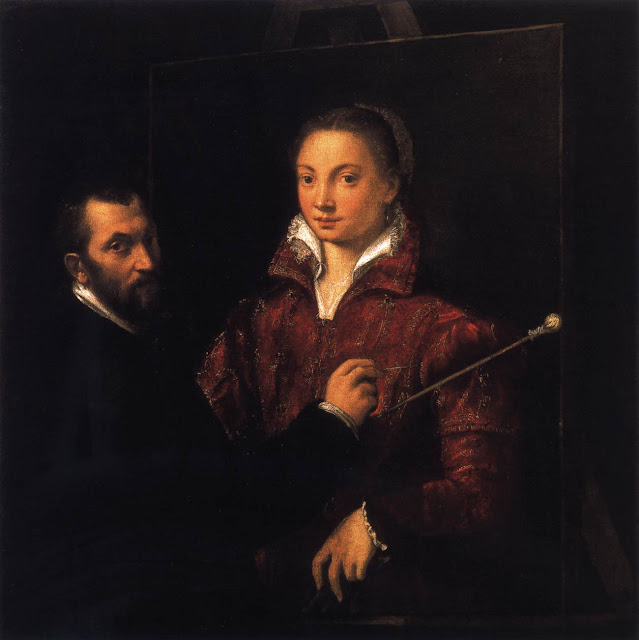Being Heard Not Seen
Thinking about privacy, women's work, and being heard not seen.
 |
| Bernardino Campi Painting Sofonisba Anguissola c. 1559 by ANGUISSOLA, Sofonisba |
She [Emily Dickinson] recalled hearing the faraway sound of an ax being brought down long after a farmer had swung it. What stayed with her was not the action or the farmer. What remained was the lingering sound. Emily wanted to be like that: heard but not seen.
from These Fevered Days by Martha Ackmann
But the most humbling lesson I have learned by digging into Meg's story is that an artist who has already given so much of herself through her work, does not owe anybody any conversation about it. Through that lens maybe Meg wasn't quiet, but instead radical in the defiant template she set for how to be a famous person who makes no apologies for letting the work speak for itself
from Meg White Is The 21st Century's Loudest Introvert by Talia Schlanger
Fans all over the world are protective of [Wendy] Carlos, and I know I'm not the only person who has typed and deleted an email to the webmaster address on her charmingly retro-looking website. The price of being an artist who connects with so many is an audience's desire for ownership; for visibility and engagement, which they have no right to. Until then, there is only the work, the corpus of unparalleled practitioner.
from Sonic Seasonings: The Genius of Wendy Carlos by Sinéad Gleeson
And according to The New York Times, the reasons for [Ella] Fitzgerald's impact included her, "equanimity and her clear pronunciation, which transcended race, ethnicity, class and age [and] made her a voice of profound reassurance and hope." Ella as a human, with a life that didn't in every moment exist to be in the service of people's moods and fan worship, was, in her time, rarely explored.
It should have been. If not to reveal the soul that informed her art, then so we could better understand the mechanics of how she invented the jazz vocal. Instead, Fitzgerald often endured with forlorn grace the kinds of questions that Black women in pop would be subjected to for decade to come.
from Shine Bright: A Very Personal History of Black Women in Pop by Danyel Smith

